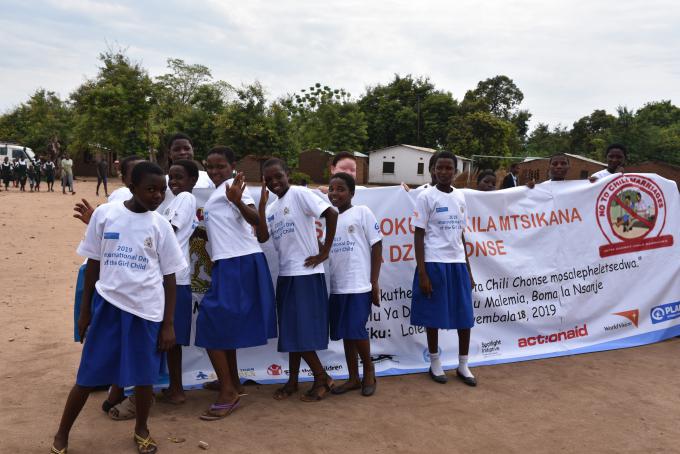Life after pregnancy at 15
In Malawi, 29% of adolescents and youth aged 15-19 begin childbearing (Malawi Demographic and Health Survey 2015-2016).
Susan (Not real name), a 19-year-old secondary school student living in Traditional Authority Dambe in Neno is mother to 4-year-old daughter Watipatsa (not real name).
Susan is not just an ordinary teen mother. Her determination allowed her to rise above her circumstances and forge ahead with her ambitions.
While she was 15 and in form three, Susan fell pregnant. At this point she became anxious as her dream of completing her education and later becoming a police officer was at stake. With the pregnancy, life as a student became hard.
“It was not easy to double as a student and a mother. I dropped out of school. Besides, with my pregnancy I became an object of fun among learners”, she recounts.
When the father of the baby denied responsibility of the baby, Susan was faced with more challenges as she struggled to provide for the child.
Then in 2017, life made a turn that would change her life and other youth around her. Susan was approached by Save the Children through a sexual and reproductive health project that was present in her area. This encounter led her to learning about comprehensive reproductive health and modern contraceptives making her realize she no longer had to feel prone to any more unwanted pregnancies.
She later decided to become a role model to other girls in her community and help them avoid teen pregnancy by becoming a Community Based Distribution Agent (CBDA) through a training provided by Save the Children.
As a CBDA, she now offers guidance and health talk sessions on Comprehensive Sexuality issues to fellow young people especially young female adolescents. She also provides short term modern contraception like condoms and pills.
“Lack of sexual reproductive health knowledge and access to contraceptive methods has been a challenge among young people in my community. For example, the health facility close to my home is run by a church and does not offer modern contraceptive methods. Government run health facilities on the other hand are 10 kilometers away, over rough terrain. In addition, in my area it was believed that modern contraceptives are for married couples only”, she says.
After getting counsel from Save the Children's personnel working in her area, she decided to go back to school in 2018. Since her overburdened parents can't afford her school fees, she uses the stipend she gets as a CBDA to pay for her school fees and other scholastic needs.
Save the Children is implementing the project in partnership with Banja La Mtsogolo, Christian Health Association of Malawi and Kamuzu College of Nursing with funding from the European Commission.
Overall the project aims to reduce teenage pregnancies, and early and unplanned child bearing in sexually active women in the hard to reach areas of Mwanza, Neno, Ntchisi, Nkhatabay and Rumphi districts.
 Malawi
Malawi 